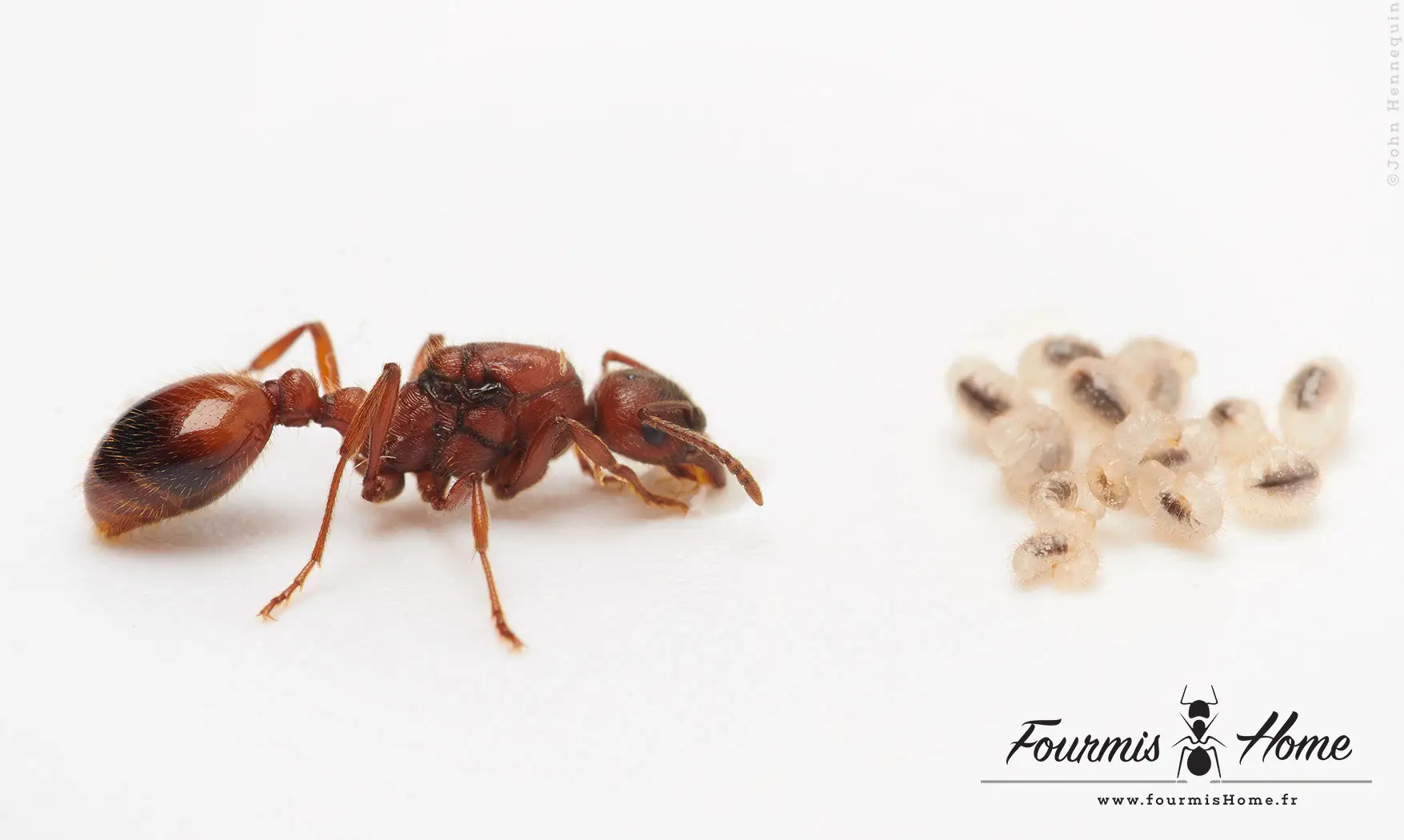
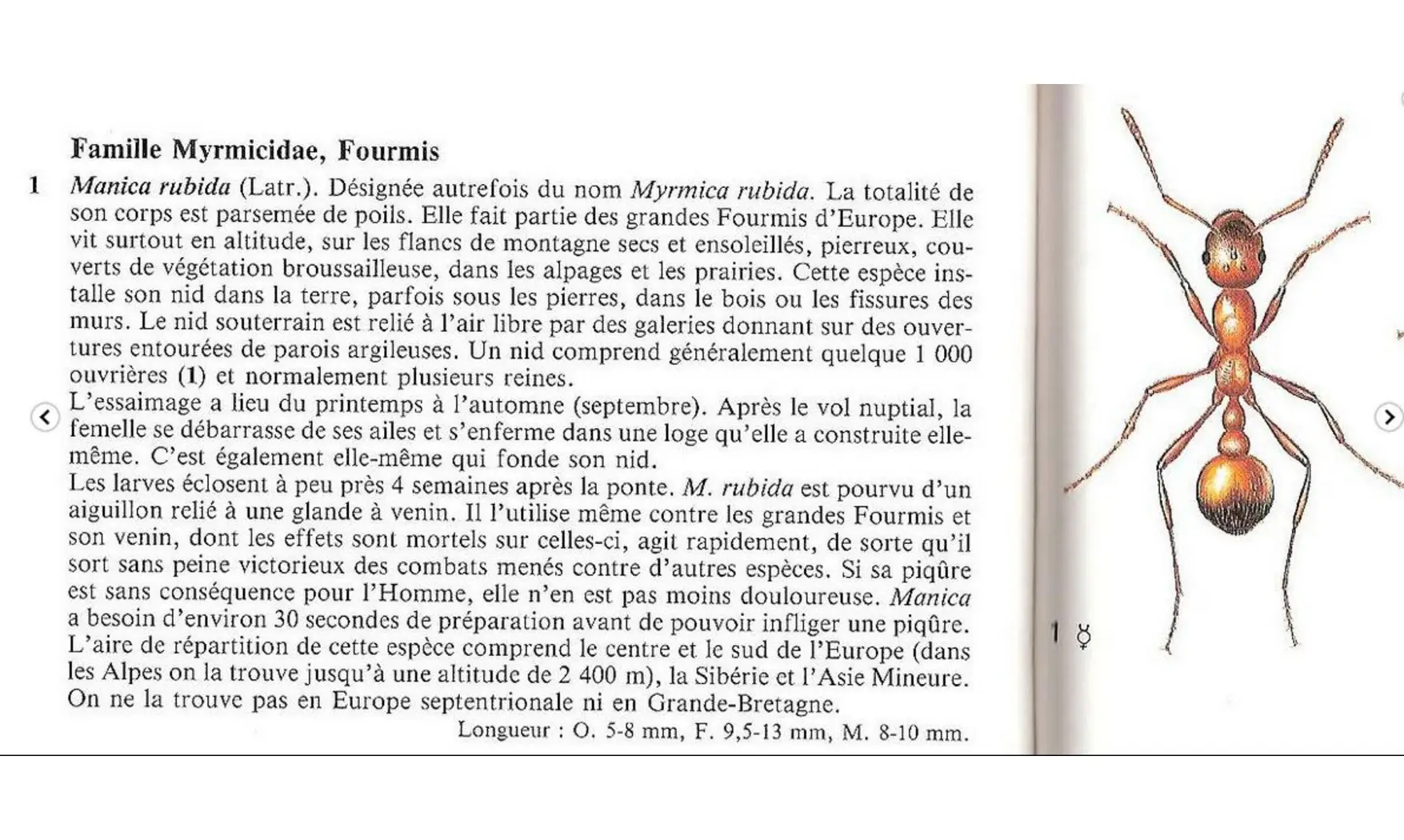
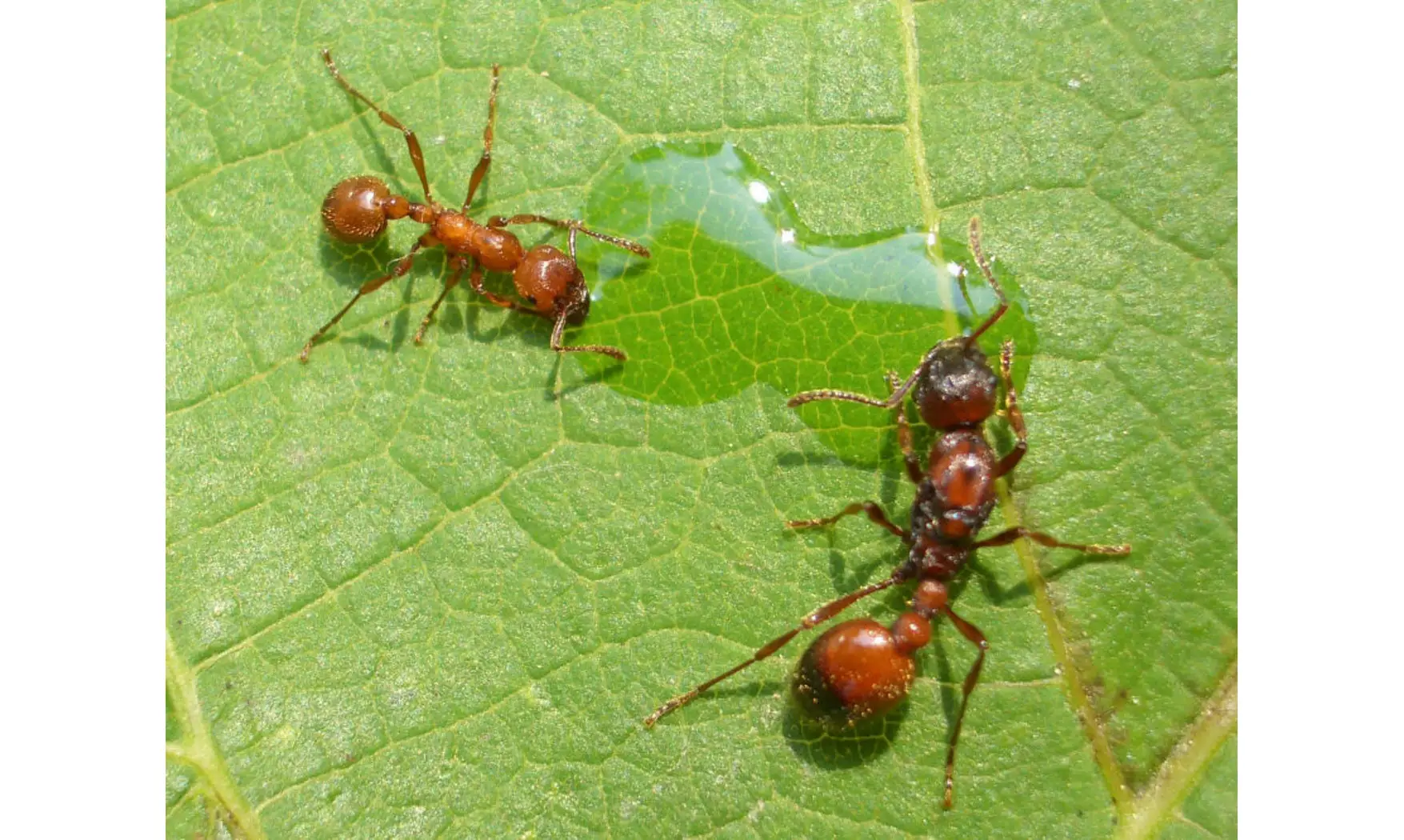
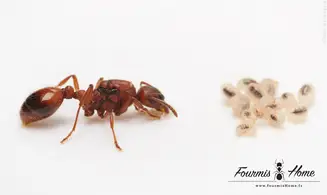
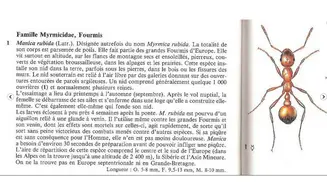
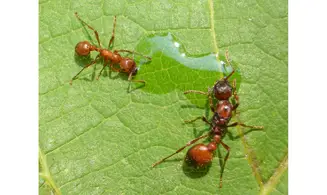
Manica rubida
Reference : MAFOUR-000
19.90€
Available
0 in stock
Latin name: Manica rubida
Taxonomy: Subfamily: Myrmicinae Tribes: Myrmicini
Breeding level: Intermediate
Geographical distribution: Central and southern Europe, between 500 and 2000 m
Habitat: Prefers sandy soils in floodplains
Colony shape: Polygynes
Queen: Size: 10 - 11mm Color: Bright reddish brown
Workers: Size: 6 - 9mm Color: Bright reddish brown
Major: No
Male: Size: 9mm Color: Shiny Black
Food: Honeydew, but also a lot of small insects like mealworms, fly, mosquito, crickets etc ...
Humidity: Hunting area: 30 - 50% Nest: 50 - 70%
Temperature: Hunting area: 18 - 28 ° C Nest: 21 - 24 ° C
Hibernation: Yes, from mid-November to early March between 8 and 12 ° C
Nest type: Plexiglas nest, nest with tubes, reconstituted stone nest.
Description: Manica rubida are very good hunters, it is one of the only endemic species of France which is equipped with a sting which makes it a very good hunter. The sting is not very painful.
Development: Swarming from April to June.
Foundation: Semi-claustral (with food) Development: 45 days from egg to worker (depending on temperature)
Size of the colony: Several thousand individuals, the queen can reach the age of 12 years.
Taxonomy: Subfamily: Myrmicinae Tribes: Myrmicini
Breeding level: Intermediate
Geographical distribution: Central and southern Europe, between 500 and 2000 m
Habitat: Prefers sandy soils in floodplains
Colony shape: Polygynes
Queen: Size: 10 - 11mm Color: Bright reddish brown
Workers: Size: 6 - 9mm Color: Bright reddish brown
Major: No
Male: Size: 9mm Color: Shiny Black
Food: Honeydew, but also a lot of small insects like mealworms, fly, mosquito, crickets etc ...
Humidity: Hunting area: 30 - 50% Nest: 50 - 70%
Temperature: Hunting area: 18 - 28 ° C Nest: 21 - 24 ° C
Hibernation: Yes, from mid-November to early March between 8 and 12 ° C
Nest type: Plexiglas nest, nest with tubes, reconstituted stone nest.
Description: Manica rubida are very good hunters, it is one of the only endemic species of France which is equipped with a sting which makes it a very good hunter. The sting is not very painful.
Development: Swarming from April to June.
Foundation: Semi-claustral (with food) Development: 45 days from egg to worker (depending on temperature)
Size of the colony: Several thousand individuals, the queen can reach the age of 12 years.
Recommended products

